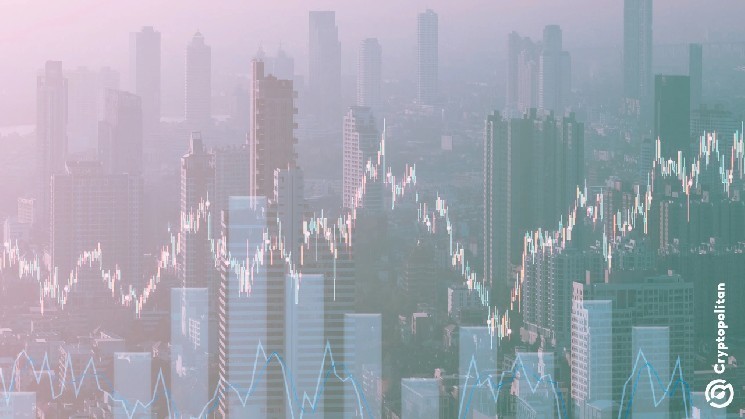Berkshire Hathaway's third-quarter operating profit soared 34% to $13.485 billion, and its cash holdings soared to a record $381.6 billion.
The company's earnings report said this significant jump in profits was due to a more than 200% jump in underwriting revenue, which totaled $2.37 billion.
But while cash is piling up, Warren Buffett refuses to tap into it. Not a single share was repurchased in the first nine months of 2025, even as stock prices fell.
Investors were expecting share buybacks. Instead they got silence.
Berkshire's performance has slowed, with Class A and B shares up 5% since the beginning of the year, while the S&P 500 is up 16.3%. The company sold its shares net in the third quarter, taking in $10.4 billion in taxable profits in exchange for raking in the stock.
This move is a clear signal that Warren doesn't see the value in it. This kind of vigilance only raises eyebrows. Especially now that Berkshire is sitting on a pile of cash larger than some countries' GDPs and refuses to spend it.
Buffett's departure causes decline as Abel prepares to take over
Warren, who is almost 96 years old, announced in May that he would step down as CEO at the end of 2025 after more than 60 years at the helm.
He remains chairman, but Greg Abel, vice chairman in charge of non-insurance businesses, will become the company's next CEO. Gregg will begin writing letters to the company's shareholders starting in 2026.
This change of guard caused the stock to slip. On May 2, just before Warren's annual meeting announcement, Berkshire's B shares hit an all-time high, closing at just under $540.
At that point, they outperformed the S&P 500 by 22.4 percentage points. However, B shares fell 11.5% following the CEO's bombshell remarks. That's still above the August low, when the stock fell about 15%, but far behind its closing high of $507 on Sept. 4.
The underperformance gap with the S&P narrowed slightly to 10.9 points as of Friday from a 12.2 point gap midweek, the largest gap so far this year.
Wall Street's reaction was not positive. On October 26, Keefe, Bruyette & Woods analysts Meyer Shields and Jing Li downgraded Berkshire's Class A shares to “underperform” and lowered their price target from $740,000 to $700,000.
The stock ended the week at $715,740. Their report is “A lot of things are going in the wrong direction.” He pointed to a long list of concerns.
They warned of GEICO's underwriting margins likely peaking, falling catastrophe reinsurance prices, falling short-term interest rates, tariff-related issues hitting railroads, and the impending loss of alternative energy tax credits.
They say all of this is expected to combine to weigh on performance next year. They said the company's lagging performance compared to its peers was “largely” the result of Warren's decision to step down.
Berkshire avoids expectations, new management poses trust issues
Investors are concerned about what they call Berkshire's “unique succession risk.” The company does not follow normal corporate strategy. We do not publish predictions. No analyst questions required.
People tolerated it because Warren was leading the show. Mr. Shields and Mr. Lee wrote that “Mr. Buffett's perhaps unparalleled reputation and what we see as an unfortunate lack of disclosure” could turn investors away if he ceases to be an everyday figure.
There's also the erosion of the so-called “Buffett premium,” the added value that traders place on Berkshire simply because Warren is at the top. The Wall Street Journal captured this change and quoted Shields as saying:
“There are people who have tremendous faith in Warren Buffett. For them, that's where their investment thesis begins and ends.”
But not everyone agrees with the panic. Chris Blomstran, president of Semper Augustus Investment Group, said Berkshire is expensive heading into the May meeting anyway. He noted that the stock is still up more than 5% in 2025, while GEICO's main rival, Progressive, is down 14%.
Chris continues to buy and believes Warren's departure is not the reason for the decline. “Everyone I know in the Berkshire world has nothing but praise and good things to say about Greg,” he told the Journal.
Henry Asher of Northstar Group agrees, saying he doesn't think Gregg needs to match Warren's stock-picking record for Berkshire to remain profitable. “We're not going to cancel Burlington Northern's shipments just because Buffett isn't there. Companies will continue to generate huge cash flows with or without Buffett.”
The Oxychem deal is the biggest move since Alleghany.
Although Berkshire distanced itself from stock buybacks and the broader stock market, it still made one major acquisition.
In October, the company agreed to buy Occidental Petroleum's petrochemical division, Oxychem, for $9.7 billion in cash. This is Berkshire's biggest deal since 2022, when it acquired Alleghany for $11.6 billion.
The move doesn't change the fact that Warren has been out of the market for most of 2025, swelling the company's cash to record highs.
Berkshire's total third-quarter profits, which include operating income of $13.485 billion and gains from public stock ownership, rose 17% to $30.8 billion.
This would significantly increase this year's total, despite falling stock prices and analyst concerns.

